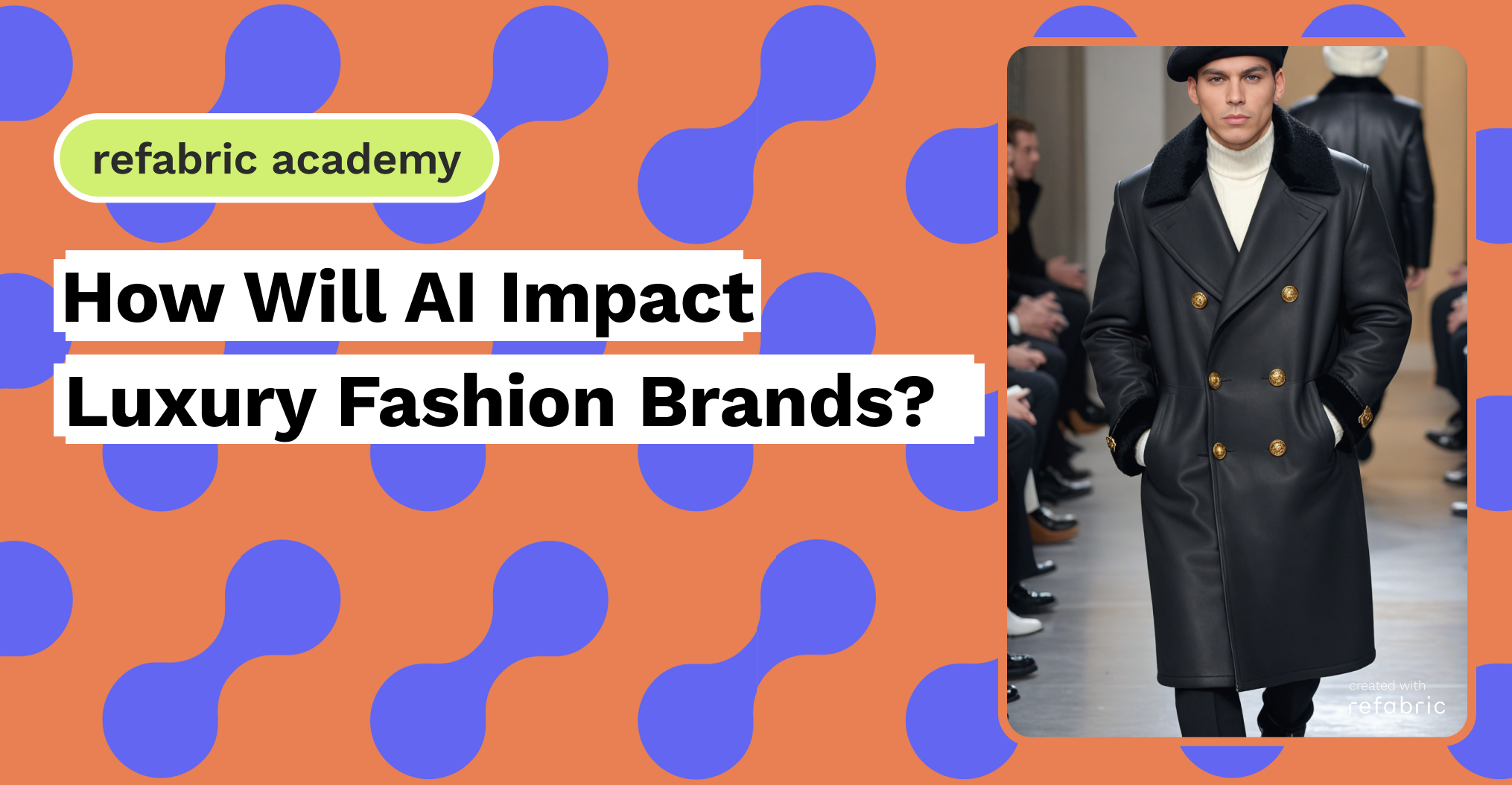In 2011, at the Hannover Fair in Germany, the world was introduced to a new term: the Fourth Industrial Revolution. We are currently amidst this revolution, which we can briefly define as the integration of industry and technology. As the boundaries between the physical and digital worlds gradually blur, there has been a sudden leap forward with the mass deployment of AI. According to the analytics company GlobalData, AI is expected to transform most industries, leading to a $376 billion market growth by 2028. Creative industries such as entertainment, fashion, and marketing are the first to feel the impact of AI, as stated by MIT Technology Review.
Within the fashion world, brands have been incorporating AI into their business processes for a long time, but they are just starting to leverage AI for design purposes. Previously, AI has been employed in more behind-the-scenes roles, such as consumer experience and marketing. To understand the current and future impact of AI on the fashion world, we need to look not only through the eyes of designers and producers but also through the eyes of consumers.
On October 20, 2023, Vogue Business in partnership with Google published “Unfolding AI: New Worlds of Fashion,” a report containing many insights on this subject. The research, conducted with 2,976 luxury fashion consumers in the US, UK, Italy, and France, aimed to identify how the use of AI tools affects consumer perception and intent. While the full study contains many valuable insights, the bottom line is that AI tools can support brands in areas of personalization, sustainable development, and innovative design, ultimately leading consumers to spend more money.
When analyzing consumer behavior, the research identifies three distinct consumer mindsets based on their priorities and values: purists, expressionists, and activists. Purists value authenticity, craftsmanship, and the pursuit of refined garments. Expressionists care about standing out with their own style and prefer brands that represent “joie de vivre.” Activists, on the other hand, prefer brands that align with their values in terms of social impact.
Brands need to develop different strategies to appeal to each consumer group. While developing these strategies, brands need to take into account the preferences of their audience. Therefore, not every brand can be expected to use AI for the same purpose and function. In the foreseeable future, we can expect brands to collaborate with AI tailored to their target audience, thereby fostering customer loyalty and enhancing revenue streams.
So, what do these three consumer groups expect from luxury brands? What role can AI play in meeting these expectations?

Keyword for Purists: Personalization
Let’s start with purists. The keyword for purists is personalization. Practical solutions offered by AI, including personalized deals and recommendations, play a large role in purists’ connection with the brand. Moreover, personalization is not only relevant for purist consumers but also for the other two groups. Purists, expressionists, and activists all are more likely to spend money on brands that offer personalization.
Keyword for Activists: Sustainability
Activists seek both environmental and personal sustainability. The fashion industry generates 186 billion pounds of textile waste annually, with 87% ending up in landfills or incinerators. Activists are disturbed by the ecological and social impact of this waste. They demand environmentally friendly production from the brands they shop at. On a personal level, activists prefer to spend more money in order to buy more durable products. This group is also willing to spend more on brands that leverage AI for sustainability initiatives and thus align with their values.
Keyword for Expressionists: Design and Content
Expressionists prefer designs that stand out, and they are willing to spend more for stronger designs, such as those enabled by generative AI. Additionally, expressionists value “content”. According to the research, expressionists are willing to pay more for brands that create exciting and engaging marketing materials. Generative AI can also play a role in producing such marketing content.
Overall, as AI continues to revolutionize the fashion industry, understanding and catering to the diverse preferences of purists, expressionists, and activists will be crucial for luxury brands in this dynamic landscape.
